Kellie Curtain Let's be upfront about breast reconstruction. Breast reconstruction surgery recreates the shape of the breast following a single or double mastectomy or surgery where part of the breast has been removed often known as a lumpectomy. There are many different options available when it comes to breast reconstruction and much to consider it can seem overwhelming. Then of course there's the emotional impact. Reconstruction is not just a boob job and it's very normal to feel anxious uncertain even mournful about losing a part of your body. In this edition of front we're going to discuss some of the reconstruction options the risks and other issues to help those thinking about reconstruction to make informed decisions. Joining us is plastic and reconstructive surgeon Richard Zinn and BCNA Director of Programs and breast cancer survivor. Kellie Shewring. Welcome to you both.
Kellie Shewring Hi. Thanks for having us.
Kellie Curtain Richard if I could start...
Richard Zinn Absolutely.
Kellie Curtain With the big question. What are the options?
Richard Zinn So it's trying to avoid overwhelming you with all the options. There is a lot of options that start from no reconstruction and you don't have to have a reconstruction but simpler procedures like a wide local excision is a smaller kind of just a lumpectomy really. And this can be done on its own or it can be doing that they're done with a matching breast reduction pattern on the side of the cancer or both sides. And then I think there are more complex reconstructions which include implant based reconstructions which can be an implant in its final shape or it can be an expander and then moving to an implant which is a two stage procedure. The most complicated procedure or the most technically complicated procedure but probably the one with the greatest long term satisfaction is using your own tissue as the final reconstruction and that is it is called a micro surgical breast reconstruction. And that is I think probably the the option with the highest long term satisfaction.
Kellie Curtain So when a woman decides that she does want a reconstruction, how does she know what's right for her?
Richard Zinn So I guess there's that there's a long way to go from the time of cancer diagnosis to getting a final treatment and your ultimate reconstruction. And I think that there are a lot of resources available to women and sometimes too much can be too much information and can be very overwhelming. So I think the first stage is to speak your breast surgeon and get some recommendations from your breast surgeon but ultimately you need to see a plastic surgeon and have a discussion, a long discussion about all all the options. I think that when a patient comes to see me and asks me about the options for breast reconstruction there are some parameters which guide me towards recommending certain reconstructions over other reconstructions - like the shape and and size of the breast and the body but also things like oncological factors. Like is the patient going to have radiation which really does limit and direct my choices for reconstructive options. I think that one of the most important things for a woman to decide when she is being offered a breast reconstruction is whether she wants her own tissue or if she is happy with an implant reconstruction. An implant reconstruction is most commonly silicone based. And it does have some problems. There certainly ... implants are getting a bad reputation but they are simpler, quicker and often the right reconstruction in a woman with the right characteristics. Using your own tissue is a much more complicated procedure. You're going to have to have tissue taken from one place which means you're going to have basically two surgeries or two surgical sites. And I think that is that patient's ultimate decision is whether they are willing to have silicone in their body or if they are absolutely fundamentally against that then their own tissue is the right way to go and that's always for me the starting point of a discussion about breast reconstruction.
Kellie Curtain Kellie you had a double mastectomy. Was reconstruction always on your list of things to do following the mastectomy?
Kellie Shewring I guess for my journey I saw it as my reward after my cancer treatment. So while I had a lumpectomy originally I had planned to have the reconstruction as soon as I possibly could.
Kellie Curtain How did you feel about losing a part of your breast? Did it surprise you? The impact of having not just the breast cancer but losing a part of your body?
Kellie Shewring I didn't think it would and it was a bit like when I lost my hair I didn't expect to have the feelings that came up quite quickly and unexpectedly. So I think one of my most vivid memories was lying on the bed with my nice warm blanket on getting ready to be wheeled into surgery and the two ladies next to me were having true plastic surgery and and I burst into tears. I got hysterical and I didn't feel ... It just it was quite overwhelming. So it wasn't till I was yeah right at the starting gate for my reconstruction that I realized the effect it had had on me personally.
Kellie Curtain So was there a sense of loss?
Kellie Shewring Not at the start. No loss at the start but obviously I ... once there was the chance that I may not be able to have a reconstruction in my second surgery after I'd had an infection. That's when the loss it was like I didn't feel complete and I didn't expect that in any way shape or form.
Kellie Curtain So you were keen to get a reconstruction? Did you consider not getting one?
Kellie Shewring Um I didn't at the time. I had quite large breasts and I guess I'm quite small in stature to say they were a big part of me literally. So no I I didn't actually ever consider not doing it.
Kellie Curtain So Richard when it comes to reconstruction, Kellie's just talked about her reconstruction following surgery. When should someone consider a reconstruction? Is at the time of the breast that the removal of the cancer or later? There's two trains of thought isn't there.
Richard Zinn Well I think that the discussion needs to be had starting from the breast surgeon and I think they play a really important role in offering the patient an option to have an immediate reconstruction and or the option of just dealing with the cancer right now and coming back for a delayed reconstruction. The problem comes in when the patient isn't offered an immediate reconstruction and there are sometimes ideal candidates for that. I think that the best results can be obtained in an immediate reconstruction and very good results can be obtained in the delayed reconstruction. But the choice needs to be needs to be offered. So from the time of the diagnosis some some women are able to think about the reconstruction and are able to embark on that process at the same time as getting rid of the cancer. And some people are just not willing or not ready to discuss other options right now and they just want to focus on the cancer reconstruction. I think that discussion needs to be had. I think that you know talking to a plastic surgeon or getting an opinion from somebody who really does a fair amount of breast reconstruction does no harm whatsoever.
Kellie Curtain Is there any reason why apart from a woman's personal preference not to have it at the same time is there any medical reason why it can't happen?
Richard Zinn I think that some woman who would have significant medical co-morbidities, I'd call them, or other medical problems going on that may be best not offered a breast reconstruction and that would be you know very very unwell patients. I think most women can be offered a breast reconstruction.
Kellie Curtain At the same time as the surgery.
Richard Zinn The other thing to take into account is this stage of the breast disease and if it is for example an inflammatory breast carcinoma or very aggressive breast cancer it may be worthwhile managing the cancer as a single stage and having some surveillance for a year to 18 months and then moving on to breast reconstruction and that that would be my recommendations.
Kellie Curtain If someone has a surgeon that says no I don't want you to do it or can't ... What are some of the reasons why? Is it because the breast surgeon doesn't want to operate with the plastic surgeon?
Richard Zinn So I think that the reason needs to be explored. Is it breast surgeon who just doesn't work with plastic surgeons and, you know, operates and then allows a patient to find to find a solution later? Or is there a specific medical reason? Breast surgeons more and more are working with plastic surgeons. And if a breast surgeon who's comfortable working with plastic surgeons says I don't think you should have a breast reconstruction immediately and in my clinic setting I'll be called by a breast surgeon and said look this patient wants to talk to a plastic surgeon but shouldn't have a breast reconstruction at the same time for reasons of of the cancer then then that is something that I will support. So I think the reason why your brain surgeon is not offering reconstruction at the same time should be discussed.
Kellie Curtain Okay Kellie you chose to use your body as a way to reconstruct you used your from your stomach.
Kellie Shewring I did have a tram flap. Yes.
Kellie Curtain Yes. And how did you feel. Was that a choice or you didn't want to have silicone?
Kellie Shewring So I actually had the tram flap with silicon implants and I had a skin sparing mastectomy so I guess it was a discussion with my surgeons. And at that particular time I guess I left it in their capable hands. They were the experts but it was all explained quite clearly to me and I guess I was quite excited at the thought of a tummy tuck.
Kellie Curtain Richard would you say most people say that's not the reason they're in but it is an added bonus sometimes.
Richard Zinn I mean it's definitely a bonus. A lot of the the places we will take tissue are somewhat cosmetic procedures that have been adapted to use that tissue that we would usually throw away to instead use it for breast reconstruction. And I think that is very valuable. When I say my patients often come to me and say look I wouldn't be wanting a tummy tuck ordinarily I think they're trying to say I wouldn't be seeking cosmetic surgery. Ordinarily I'm not that kind of person but it is a you know it is certainly an advantage in many people with a specific body type.
Kellie Curtain So is there less risk of infection if you're using your own body at all?
Richard Zinn I think that there are certainly the likelihood of rejection is is is lower in the long term. So in the short term there are greater risks. The procedure is is a longer procedure and it does take more time, more resources. But once that tissue has taken and settled and that I would say is by three weeks you're generally pretty much out of out of the woods and the surgery you know your long term outcomes are very favourable. You won't get a infection years down the line of a reconstruction where you've used your own tissue. On the other hand if you use an implant you may get an infection years down the line and we don't know why and they aren't you know the implant can harden with time which we think is a result of a low grade infection around the implant and needs to be re operated and sometimes at some stage as patients no longer have the quality of tissue covering that implant to allow us to replace the implant. And the only real option at that stage is using tissue.
Kellie Curtain How do you manage the expectations of a reconstruction? Do you go in whether you're having reconstruction at the time of your breast surgery or at a later date. Is it a simple single procedure?
Richard Zinn So I think expectations. Managing expectations is probably the number one thing you need to do when embarking on breast reconstruction with the patient. I reiterate a number of times that breast reconstruction is never a single procedure. It's always going to be multiple procedures. Most commonly the big procedure is the first procedure where we get the tissue there or we get the implant there and things settle down and thereafter there are minor adjustments and revisions that we can do which are smaller secondary procedures. Very often day case procedures, you won't be off work for you know more than a day or two while you recover. But that first procedure takes some time to recover. I think that there are a number of ways that I help or I recommend for patients to in terms of their expectations to be managed around how many procedures I think that when you're having your consultation before you embark on the reconstruction you should get your surgeon to write down the number of steps you going to likely have. So the first step is the big tissue transfer. The second step will be a revision surgery and maybe some fat grafting the third operation is a nipple reconstruction. The fourth operation or the full health procedure may just be a tattoo and so have that written out. I think that other very useful thing in managing expectations is seeing images that a surgeon can show you of people going through their journey. You know a picture tells a thousand words it's this is it's a way that a patient can really understand and truly understand where the tissue comes from how we get it there what it looks like what an implant looks like relative to your tissue or what an implant and a flap look like together. So asking your surgeon to show you a number of styles of reconstruction and people with a similar body shape to you is very important in managing your expectations.
ADVERTISEMENT A breast cancer diagnosis comes with lots of questions. BCNA's Helpline is here to provide some of the answers. Staffed by trained cancer nurses, the Helpline can help you at any stage of your journey. Call the Helpline on 1800 500 258..
Kellie Curtain Size is probably another very common question. Do you as the surgeon determine the size. Or is it purely personal choice. And how is how do you help someone make the best decision?
Richard Zinn It's a great question. There is a lot that can be done to make a patient the size they want to be. So I guess I start off by what size are you now and where would you ideally like to be is one of the first points I discuss. I think going smaller or staying the same size tend to be easiest and going larger does bring in a number of risks and potentially requires a different style of reconstruction.
Kellie Curtain Really! So Kellie for example had large breasts starting to go back to a similar size of large wouldn't be as problematic as someone with small breasts wanting to go significantly larger.
Richard Zinn So I think going the same size or smaller is much easier. Keep going larger means that we have to stretch tissue. We have to get you to this place where you are either your implants or your own tissue is going to fill that space. For example last night I did a reconstruction where we did a mastectomy and the easiest thing on table is to weigh that mastectomy to know exactly the size that is coming off the patient the patient said she wanted to be exactly the same size. When she that that tissue that came off the top of the table was 390 grams we knew she was going to have radiation so we wanted to add some volume because the radiation does shrink the tissue. We used a tummy as a tummy tuck using a dip reconstruction to reconstruct the breast and we ultimately put in 500 grams of tissue which is a larger breast but will with radiation expected to shrink down to the same size and those are some of the kind of ways we can we work it out really.
Kellie Curtain Kel, with your reconstruction did you just want to feel like you had your old breasts back and was the reconstruction process what you expected?
Kellie Shewring Was it what I expected? No. And I think in retrospect I probably should have asked a lot of a lot more questions and I know now there's I guess more information that's out there. There's a BRECONDA tool that can help you decide what type of reconstruction but it would be if you don't feel comfortable or you're not getting the answers get a second opinion. But I think Richard mentioned it. You know write down your questions make sure you know what your expectations are so be open with your surgeon if you play tennis or swim or if you have young children and you're having to pick them up and all of those things I guess that was the big ticket item for me. I actually hadn't realized. And to be quite blunt with the drains and you know I couldn't wipe my own bottom for a couple of days so my husband had to step in and I hadn't thought about some of the really simple things you take for granted.
Kellie Curtain And what about having a breast reconstruction. Did you expect to feel some sort of sensation still?
Kellie Shewring I did and that was one area that my wonderful surgeon didn't didn't touch on. And I guess when the nurse come in and said to me I said I had some tingling they went "oh that's your sensation returning". And it's. Yeah so. So no in my particular example I had tissue expanders and then permanent implants down the track. Yeah. I don't have a lot of sensation and I'm a bit of a hugger. So when I hug people yeah for the first time they're quite hard.
Kellie Curtain Is that a misconception Richard? That people still think there'll be some sort of sensation in the breast or can some people still feel sensation?
Richard Zinn It depends firstly what kind of surgery they have. So if they have a breast reduction they'll get they should get this sensation back if they have implants you're unlikely to get anything other than deep sensation back. And with your own tissue again deep sensation but you don't really get what's would be normal sensation returning. Even in the nipple sparing mastectomy where we spare the nipples I really need to often enlighten patients that they know they don't feel or behave like normal nipples again and they don't really have the sensation in those nipples.
Kellie Curtain Are there any risks associated with breast reconstruction?
Richard Zinn There's always risks with any operation. There's there's plenty of risks. So it's unfortunate it's an operation. And there are risks related to your breast where we operate and there's risks related to where we take tissue from. There's short term risks. There are risks around the time of surgery and there are long term risks many years down the line. There's risks that are related to only your breast and where we take the tissue from and there's risks related to a whole body. So this is how that's how I generally will counsel the patient. I think that your early risks are things like bleeding, infection, pain. These are common. Scarring, of course. There are risks related to the transfer of tissue like that not working and the flap actually failing or being rejected. You can lose part of the flap, you may need to go back to theatre for a number of reasons. The late complications: you may not like the way it looks, you may not like the way it feels, you may not get any sensation back, you may actually have nerve injury which means that you may have long term pain. You may have a weakness of areas that we take tissue from. For example the belly that can actually be weaker after we take that tissue and so you may not be able to do stomach crunches or you may struggle to sit up without using your hands. With implants short term risks include rejection and losing the implant which is devastating. Long term risks include pain related to the implant, implants hardening, infections around the implant and then the new kind of thing that's looming is ACL which we starting to see related to heavily textured implants which is a type of lymphoma that can develop around the implant approximately 10 years after surgery at incredibly low rates. Probably somewhere in between one and ten thousand one in 70,000 but it is something worth mentioning. And then obviously any surgery has risks of clots in the leg or DVT and pulmonary embolism, nausea and vomiting, anaesthetic related complications.
Kellie Curtain I think a real concern for someone about to have a breast reconstruction following a breast cancer diagnosis would be: does a breast reconstruction hamper or prevent detection of cancer recurrence?
Richard Zinn So that's it that's a great question and it's a question that often prevents women from embarking on breast reconstruction. And it doesn't. The short question is it does not increase the likelihood of breast cancer recurrence. And it does not mask breast cancer if it does recur. And ultimately when we've looked at the long term outcomes of patients who did develop breast reconstruction or did have a breast reconstruction and patients who did not survival is no different. So even if you do get a recurrence around the breast reconstruction survival is the same as if as if you had developed at breast reconstruction with up that same as if you had developed that recurrence without a risk reconstruction in the area.
Kellie Curtain Kellie you touched on before that you were quite surprised about the emotional impact as you're about to have your surgery. Richard is that a really important part of breast reconstruction - the pre counselling.
Richard Zinn Yes it is. If people react to stress in different ways and it's very difficult to predict how one woman is going to respond to the requirements of having cancer surgery and breast reconstruction as compared to another. I think that what amazes me with women is that they will often at the time of diagnosis or when they embarking on breast reconstruction see it as this massive mountain that they have to climb and almost immediately after that surgery has been done in that first stage. Even in my most challenging patients once they have finished that first procedure the mastectomy is done or the first part of breast reconstruction is done it's like they now walking down the hill there. There's an ease about them. They feel like they've really come through the tunnel at the end. And it's incredible at how how quickly patients tend to bounce back.
Kellie Curtain Cost is another important factor. It's a it's a very big issue with breast cancer. In the public system ... Breast reconstruction no cost. In the private health system it can vary a lot. So what is the best approach there for someone choosing?
Richard Zinn It's very difficult to predict exactly what it's going to cost. I guess for each patient your own circumstances need to be taken into account. Do you have Medicare cover?. Do you have medical insurance cover? What kind of reconstruction do you want? Because different reconstructions take different amounts of time and consequently incur different costs. The advantage in the public system is that it's of course it's free. But the disadvantage is that it takes a long time to completely reconstruct a breast reconstruction from the first stage of the procedure to the final stage which may be three or four different procedures. I would generally say can be something between six months to a year between each stage. So from the time you embark on your reconstruction it can take you up to four years to finish your reconstruction that as opposed to private practice where you can have your procedure and then three monthly have your secondary procedures and your final touch ups. You can be completed with the reconstruction in a year but of course the costs are different. In private practice it varies from state to state from town to town from surgeon to surgeon. So I think that obviously an individualized assessment is important.
Kellie Curtain And to ask maybe to ask about the fees?
Richard Zinn Absolutely. I think upfront you should be presented with an estimate of costs which we try to make as accurate as possible so that you can understand exactly what it's going to cost you to get your your reconstruction. And that should include your hospital fee, your out of pocket fee, your anaesthetist fee and your surgeon fee.
Kellie Curtain Kellie you mentioned before that you thought the breast reconstruction was a bit like your reward after going through breast cancer. Richard's just just touched on how complex it actually is it's not quick. It's quite a journey in itself. Would you do it again? Are you glad you did it?
Kellie Shewring I am glad I did it and I think it's a very personal thing as well. I haven't chosen to go through to the end so I didn't do a nipple reconstruction and tattooing. Because from the outside I looked normal and that that that's you know tick the box in my mind. So you trust your gut know what you want manage your own expectations so ask the questions. They the surgeons see hundreds of people they've seen everything so don't be afraid know what you want tell them what's important to you.
Kellie Curtain And Richard is breast reconstruction for everyone and what would your top three tips be?
Richard Zinn It's definitely not for everyone you know. I think you know like Kellie says trust your gut. Don't get talked into by colleagues, friends, family. It's your decision at the end of the day. If you don't feel the need to have a breast reconstruction don't move ahead with a breast reconstruction. And you know I've seen young healthy fit people in their early 30s who've said I just don't feel the need to, so you know I'm not going to go ahead with and I absolutely encourage that. My three tips for breast reconstruction are to Number One trust your gut. Trust your gut in terms of going ahead. Firstly and trust your gut in terms of what kind of reconstruction you want because that's the best starting point. Do you want to own tissue or do you want an implant? The second point would be trust your surgeon and your breast team. Really work with them. Don't fight against the advice.
Kellie Shewring Definitely.
Richard Zinn I think the advice is is is always for your best interests. There's no hidden agendas. You are always the number one person and you will your expectations. We aim to meet your expectations. I think finally it's do your research don't do too much research and ask questions. Keep lists throughout the process. Make sure that your answers your questions get answered and that you are satisfied before you move on to the next stage.
Kellie Curtain Thank you Richard and Kellie for being upfront about breast reconstruction. A proud production of Breast Cancer Network Australia with thanks to Cancer Australia through the supporting women in rural areas with breast cancer program. Our online network is a great place to connect with those with a shared experience but always contact your health team with any individual concerns. For more information about breast reconstruction you'll find links to valuable resources on our website BCNA dot org dot A-U. The opinions of our guests are welcome but may not be shared by BCNA and let us know what you think too by leaving everything. I'm Kellie Curtin. It's good to be upfront with you.


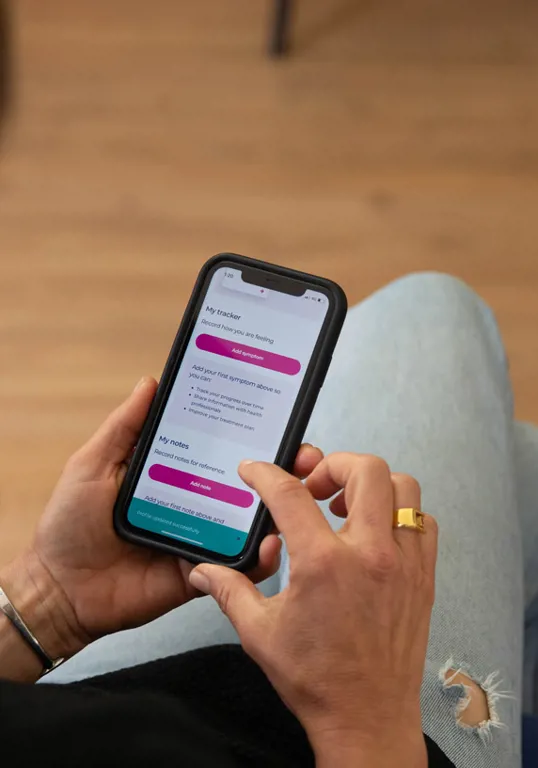




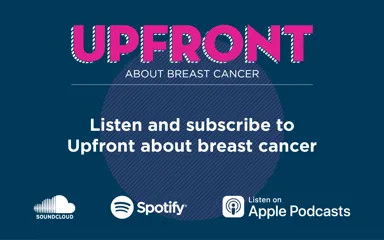
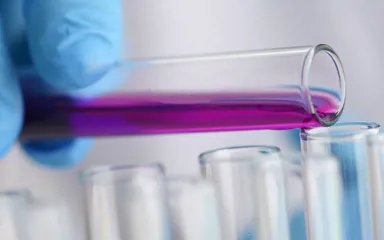
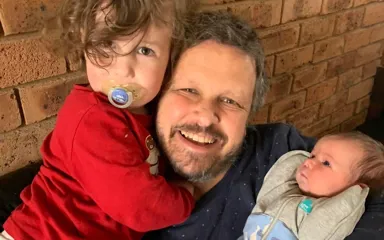
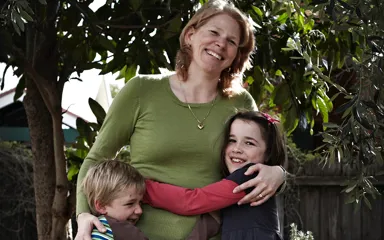
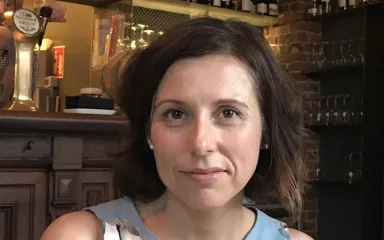
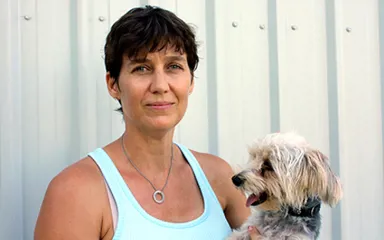

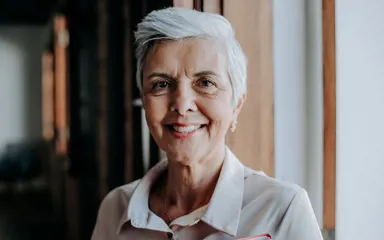








Listen on